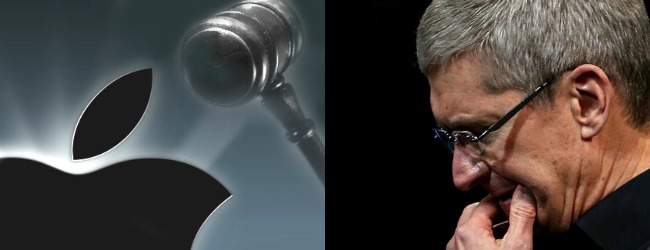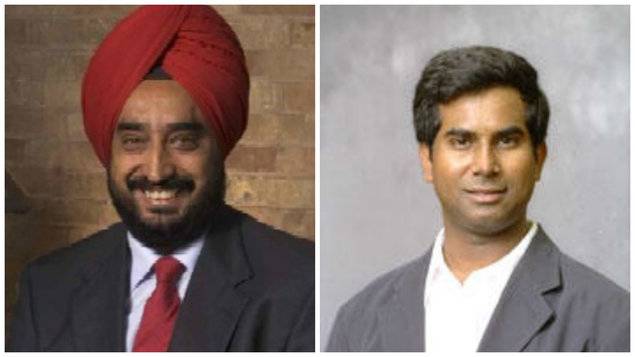
Heard of Professor Gurindar Sohi and Terani Vijaykumar? The two Indian engineers sued Apple on patent infringement – and won.
A federal jury on October 16 ordered Apple Inc. to pay the University of Wisconsin $234 million for illegally using the university’s patented technology to power their A7, A8, and A8X processing chips used in Apple’s flagship products like the iPhone 5s, iPhone 6, iPhone 6s, and some iPads.
Wisconsin Alumni Research Foundation (WARF), the licensing department of the University of Wisconsin, sued Apple in January 2014 alleging infringement of its 1998 patent on a “predictor circuit”, developed by Gurindar Sohi (L), Terani Vijaykumar (R), Andreas Moshovos, and Scott Breach. The four engineers led by Sohi played an instrumental role in coming up with a technology known as “Table-based Data Speculation Circuit for Parallel Processing Computer”, which enhances a device’s processing powers.
WARF’s complaint stated that the patent was issued to the four as a result of their “labour and ingenuity”. “The invention disclosed and claimed in the patent has been recognized by those in the art as a major milestone in the field of computer microprocessor architecture/design. It improves the power efficiency and performance in processors with the help of a “data speculation circuit,” the complaint added.
“We believed our technology was ahead of its time. Almost two decades ago we tried to anticipate how computers would need to operate today. Our team invested the equivalent of more than 11 years of work to solve this problem,” Sohi said.
Do university technology patents pay off? Ask Wisconsin (and Apple). http://t.co/v6i4DG17l3 by @DawnC331 pic.twitter.com/SQUelsWS0c
— Re/code (@Recode) October 17, 2015
The amount was less than the $862.4 million WARF was claiming in damages for using their patent without their consent to “enhance efficiency and performance” of their signature products. Apple had argued that WARF’s patent entitled it to as little as 7 cents per device sold, a far cry from the $2.74 that WARF was claiming. On October 15, US District Judge William Conley ruled that Apple had not willfully infringed WARF’s patent, eliminating a chance to triple the damages in the case.
For a company that sued others for patent theft, sad day for #Apple 2 b caught doing the same to a university http://t.co/p9BXWonX1S — Sunil Jain (@thesuniljain) October 18, 2015
The university praised the decision in a statement and said that “it is a serious matter for us to undertake litigation to protect the UW’s patented inventions”. Carl Gulbrandsen, managing director of WARF, said, “This is a case where the hard work of our university researchers and the integrity of patenting and licensing discoveries have prevailed. The jury recognised the seminal computer processing work that took place on our campus.”
The University of Wisconsin sued Intel over the same patent in 2008. That case was settled out of court for $110 million.
This Article (iPhone Lands In Legal Soup: Apple Sued For $862.4 Million For Stealing Indian Engineers’ Patent) is free and open source. You have permission to republish this article under a Creative Commons license with attribution to the author and AnonHQ.com.






GREAT NEWS!. I still remember the 80’s-90’s I was a happy apple user, but now thanks to Steve’s big ego and the iDiots fanboys, I don’t buy a s***t from them anymore!(same case with samshit).